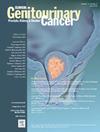阴茎癌个体患者的复杂决策:欧洲大批量参考中心的基准不同实践:来自eUROGEN调查的结果。
IF 2.3
3区 医学
Q3 ONCOLOGY
引用次数: 0
摘要
背景与目的:阴茎癌(PeCa)由于其罕见性和缺乏前瞻性研究,导致治疗挑战和争议,仍然是一个挑战。指南提供了建议,但与临床实践存在差异。本研究分析了欧洲参考中心管理高危PeCa的专家的治疗实践。方法:横断面调查包括来自13个欧洲国家的39名PeCa专家,代表了高容量中心。描述性分析评估了(新)辅助治疗偏好、系统方案选择、免疫治疗使用和新一代测序(NGS)整合。主要发现和局限性:高危PeCa管理的差异,特别是(新)辅助治疗的使用,在参与者中被注意到。这些差异突出了专业背景的影响和参与者之间治疗方法的差异。系统方案偏好和免疫疗法的使用也各不相同。有限的NGS整合显示了精准医疗采用的差距。局限性包括样本量、自我报告数据和横断面设计。结论和临床意义:本研究为欧洲大量参考中心的专家提供了PeCa管理的见解,强调了以证据为基础的建议、指南遵守和合作的必要性,以加强PeCa护理。患者总结:由于其罕见性和治疗争议,PeCa的治疗是复杂的。这项研究调查了欧洲参考中心的专家的做法,揭示了治疗的差异。研究结果强调了循证护理和协作在优化PeCa管理中的重要性。本文章由计算机程序翻译,如有差异,请以英文原文为准。
Complex Decision Making for Individual Patients With Penile Cancer: Benchmarking Divergent Practices in European High-Volume Reference Centers: Results From eUROGEN Survey
Background and objectives
Penile cancer (PeCa) remains a challenge due to its rarity and the lack of prospective studies, leading to treatment challenges and controversies. Guidelines offer recommendations, but discrepancies with clinical practice persist. This study analyzed treatment practices among specialists managing high-risk PeCa in European reference centers.
Methods
A cross-sectional survey included 39 PeCa specialists from 13 European countries representing high-volume centers. Descriptive analysis assessed (neo)adjuvant therapy preferences, systemic regimen choices, immunotherapy use, and next-generation sequencing (NGS) integration.
Key findings and limitations
Variations in managing high-risk PeCa, especially in (neo)adjuvant therapy utilization, were noted among participants. The differences highlight the influence of professional backgrounds and variations in treatment approaches between participants. Systemic regimen preferences and immunotherapy utilization also varied. Limited NGS integration indicated gaps in precision medicine adoption. Limitations included sample size, self-reported data, and cross-sectional design.
Conclusions and clinical implications
This study offered insights into PeCa management by specialists in high-volume European reference centers, stressing the need for evidence-based recommendations, guideline adherence, and collaboration to enhance PeCa care.
Patient summary
Managing PeCa is complex due to its rarity and treatment controversies. This study examined practices among specialists in European reference centers, revealing treatment variations. The findings emphasize the importance of evidence-based care and collaboration in optimizing PeCa management.
求助全文
通过发布文献求助,成功后即可免费获取论文全文。
去求助
来源期刊

Clinical genitourinary cancer
医学-泌尿学与肾脏学
CiteScore
5.20
自引率
6.20%
发文量
201
审稿时长
54 days
期刊介绍:
Clinical Genitourinary Cancer is a peer-reviewed journal that publishes original articles describing various aspects of clinical and translational research in genitourinary cancers. Clinical Genitourinary Cancer is devoted to articles on detection, diagnosis, prevention, and treatment of genitourinary cancers. The main emphasis is on recent scientific developments in all areas related to genitourinary malignancies. Specific areas of interest include clinical research and mechanistic approaches; drug sensitivity and resistance; gene and antisense therapy; pathology, markers, and prognostic indicators; chemoprevention strategies; multimodality therapy; and integration of various approaches.
 求助内容:
求助内容: 应助结果提醒方式:
应助结果提醒方式:


